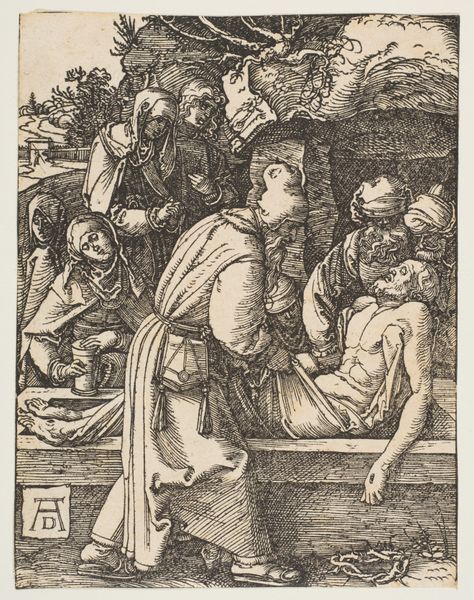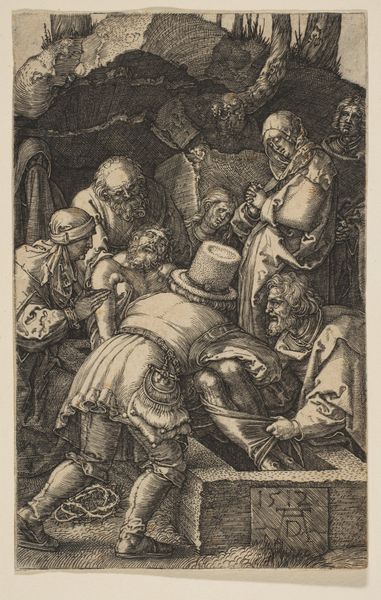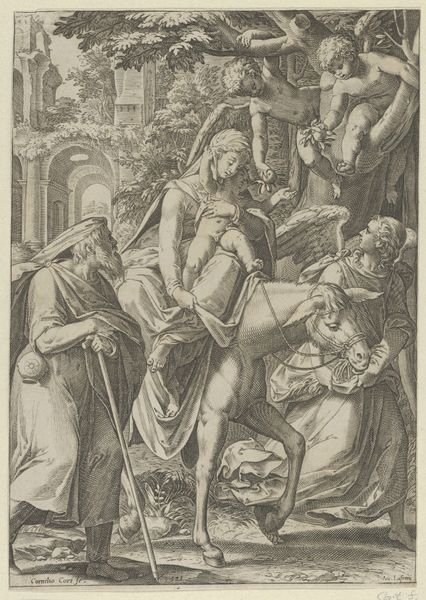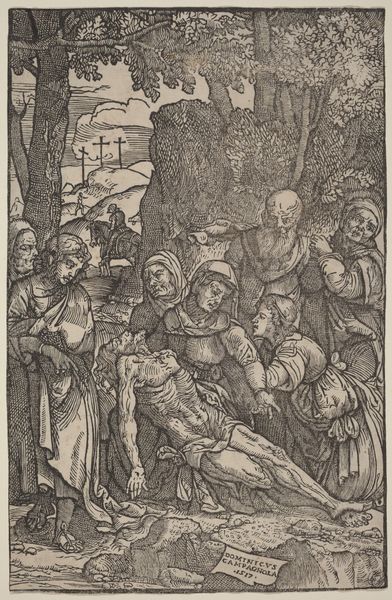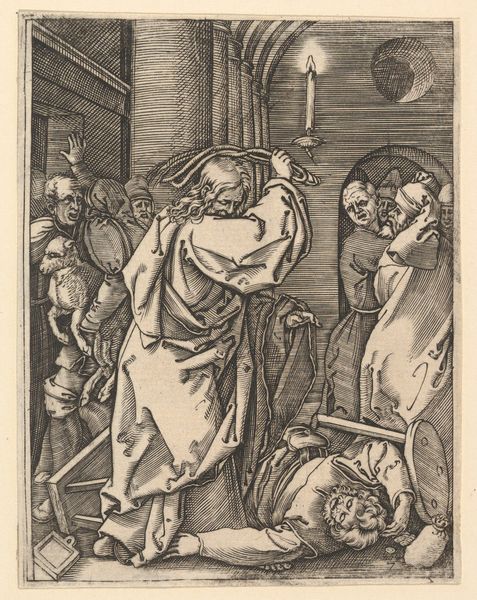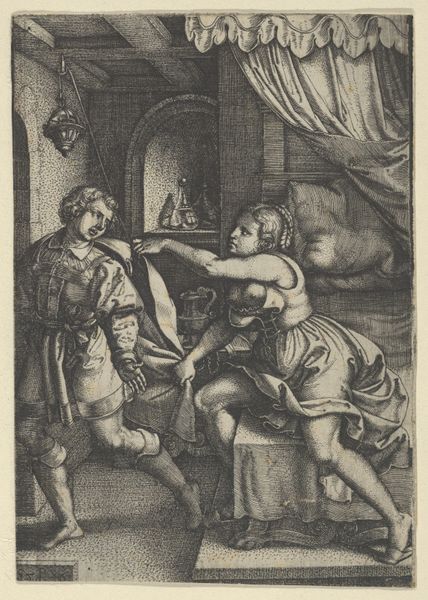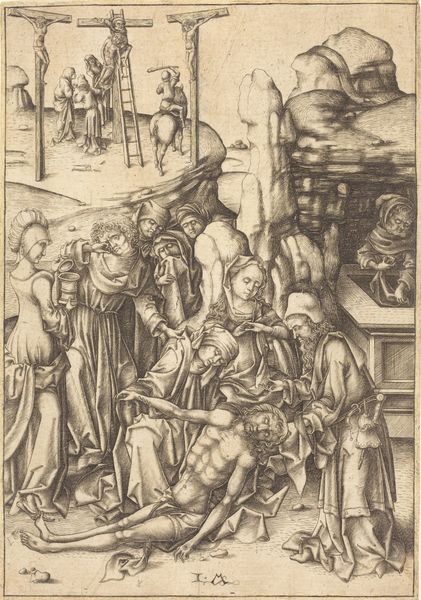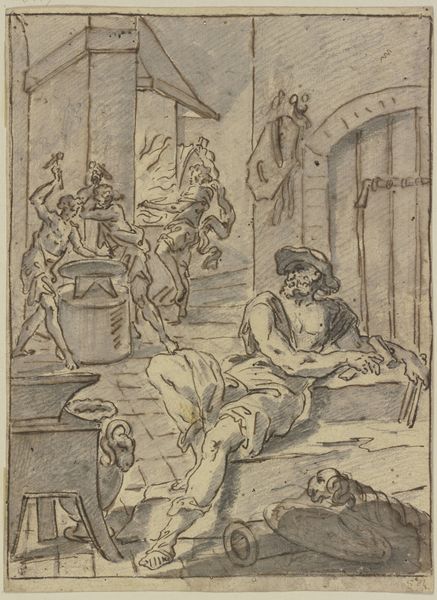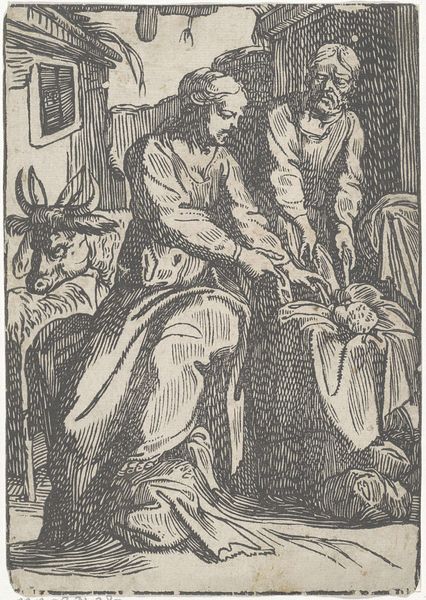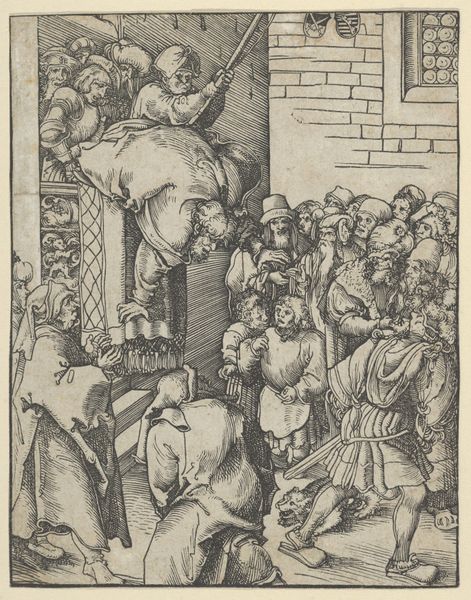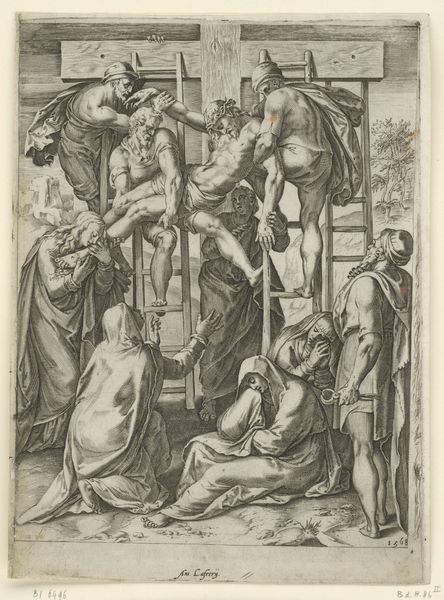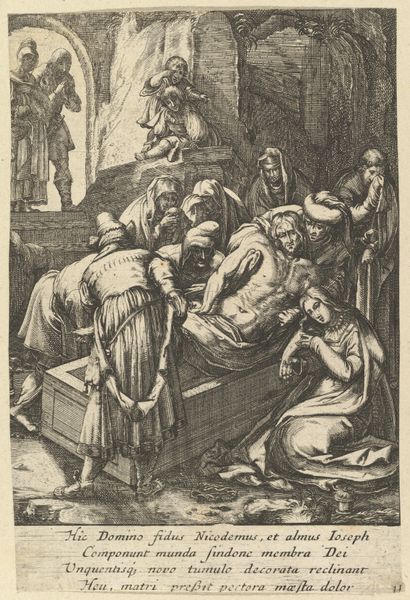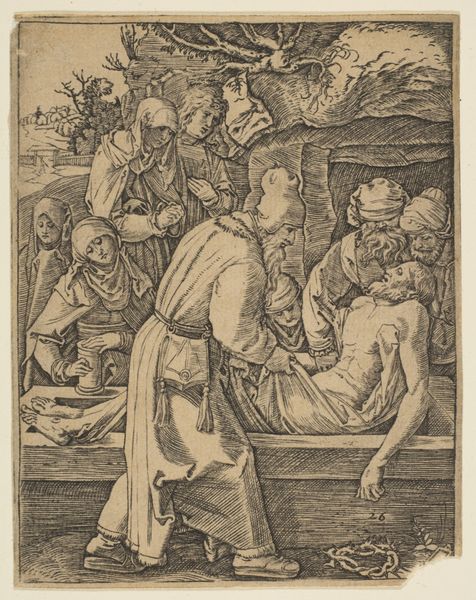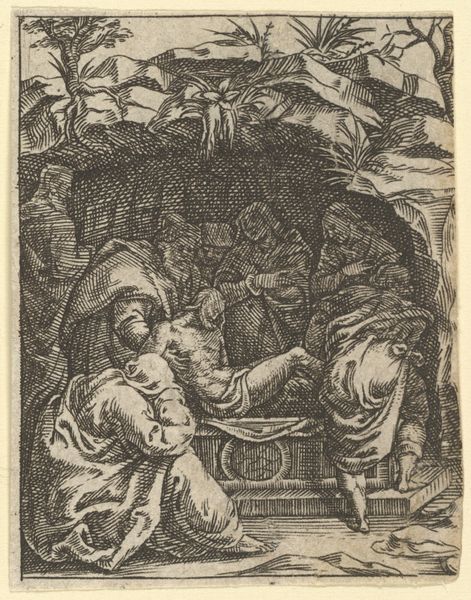
drawing, ink
#
drawing
#
ink drawing
#
medieval
#
narrative-art
#
figuration
#
ink
#
genre-painting
Copyright: Public Domain
Curator: Clemens Brentano's ink drawing, "Barmherzige Schwestern pflegen einen Kranken im Hospital," depicts merciful sisters caring for a sick person in a hospital. Editor: Wow, it feels medieval and claustrophobic, like a scene pulled straight from a shadowy dream. There’s an intense stillness despite all the activity, you know? Curator: Right. The scene evokes not just a historical period but also broader power dynamics and social roles. It’s difficult to look at this drawing without acknowledging the religious dimensions of care work throughout history. How women have historically been at the forefront... Editor: You're totally right, the sisterhood is evident in this visual; their hands are so actively devoted to a shared labor, whether it is preparing medication or maintaining a vigil near their beds. The image seems to highlight female empathy. Do you feel this comes off sentimental? Curator: Not necessarily, but it invites analysis of gendered expectations around labor and the persistent association of women with caregiving roles. It begs the question, is care simply "natural" labor for women? Or has its social importance often been disregarded precisely *because* of that association? Editor: Absolutely! Also, I can almost smell the antiseptic. Does that make sense? Like the sharp, clean odor in the face of what I'm sure must have smelled truly grim. Curator: Indeed. By placing it within the broader framework of the history of hospitals, we can then connect to discourses of poverty, hygiene, and public health policies of the era. Editor: So heavy! But then there's also just the quiet dedication shown in those careful hands attending the patient... It's beautifully human, however idealized the view might be. What are your thoughts on Brentano here as a man painting this scene of almost entirely women at work? Curator: Right, how does he situate himself, and from where, within the space depicted? How are we, as viewers in the present day, similarly positioned and implicated? This could tell us volumes. Editor: True. After really considering it, it leaves me thinking of resilience—the endurance of spirit despite bodily suffering. I suppose a melancholic kind of hope rises to the surface here.
Comments
No comments
Be the first to comment and join the conversation on the ultimate creative platform.
